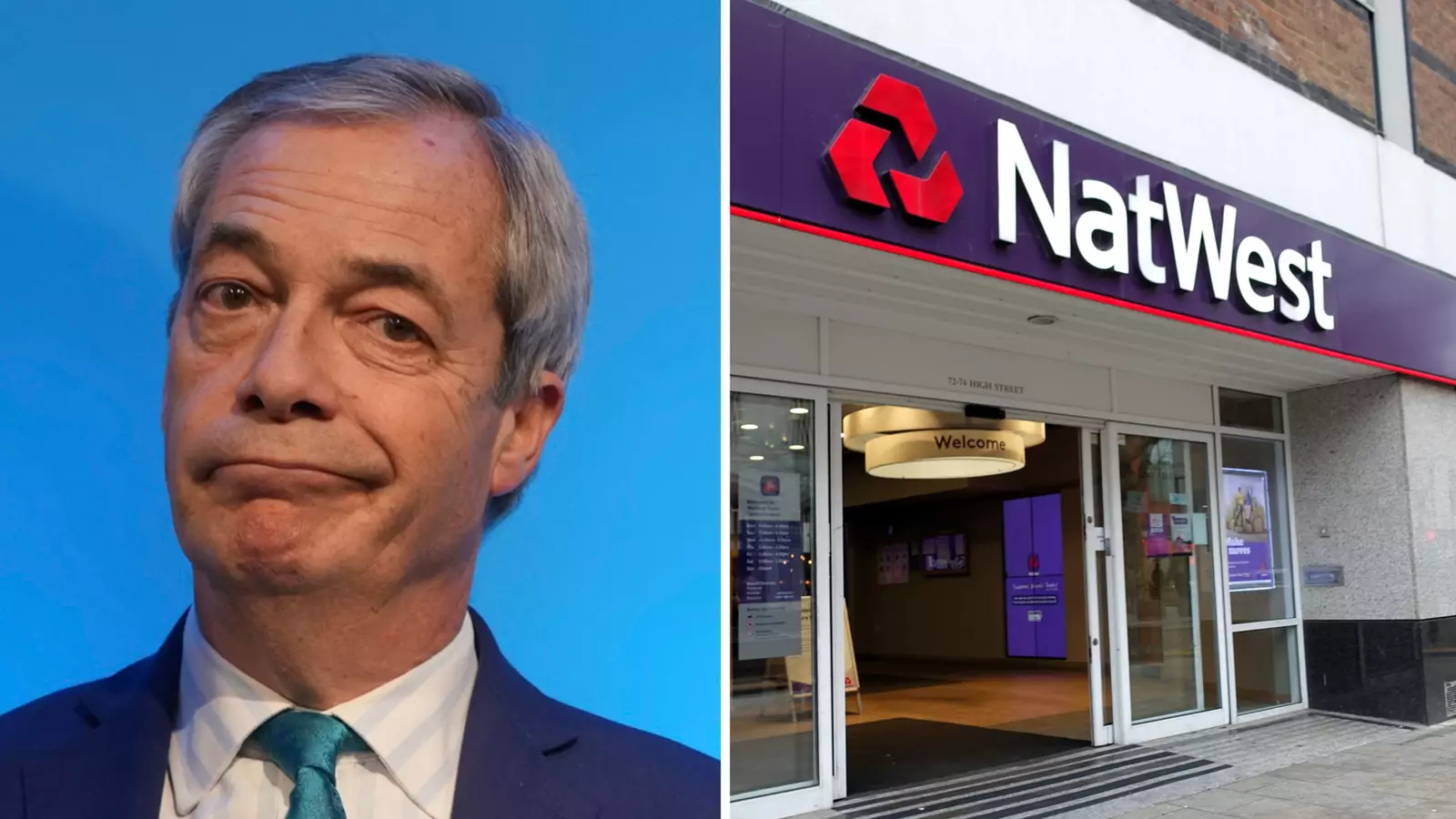In recent months, the UK banking landscape has been rocked by a scandal involving NatWest Group, particularly surrounding its treatment of political figures. This irregularity came to light when Nigel Farage, the leader of the Reform UK party, found his accounts closed under dubious circumstances. The controversy has since led to the ousting of Dame Alison Rose, NatWest’s former chief executive, fueling discussions about the ethical considerations in the banking sector and the political ramifications entangled in the situation. Farage, armed with internal evidence, alleges that political motivations, rather than economic necessities, dictated his debanking, igniting public discourse about the rights of politically exposed persons (PEPs) in dealings with financial institutions.
The emergence of private criminal proceedings initiated by Farage against NatWest marks a pivotal moment in this ongoing saga. With his legal team, led by Chris Daw KC, examining potential grounds for criminal prosecution against the bank, this move suggests more than just an individual grievance; it raises significant questions about corporate accountability in the UK. The motivations behind Farage’s legal actions are apparent, as he aims not just to rectify his personal grievances but also to send a clear message regarding the treatment of all individuals within politically sensitive contexts.
Dan Morrison, representing Farage, stated concerns about possible criminal activities stemming from NatWest’s internal decisions. The gravity of pursuing a private prosecution signifies Farage’s determination to redefine the parameters of acceptable banking conduct further. Such a legal escalation could entail broader ramifications, potentially reshaping the relationship between banks and customers within the political sphere and beyond.
This legal scrutiny emerges at a particularly strategic time, coinciding with NatWest’s annual report, soon before the government is poised to divest its remaining shares in the bank. The juxtaposition of Farage’s actions with these significant financial developments heightens the stakes. With the government’s financial ties to NatWest about to unravel, scrutiny over the bank’s performance and its ethical standards could influence public perception and shareholder confidence. The interplay of business ethics and political affiliations becomes even more critical, especially in a post-bailout environment where many eyes are watching to see if corporations prioritize financial gains over civic responsibilities.
Public sentiment surrounding this debanking incident continues to evolve, fueled by narratives of unfair treatment and corporate indifference. Farage has gained traction in his party’s standings, reflecting a broader dissatisfaction with traditional political parties. His recent polling successes place Reform UK ahead of the historical powerhouses, Labour and the Conservative Party, revealing a potential shift in voter mindset. This progressive momentum could further embolden Farage’s stance, framing him as not just a politician but a voice for individuals who feel marginalized or unfairly treated by the system.
The ramifications extend past Farage and his personal ordeal with NatWest; they invite scrutiny over the treatment of politically exposed persons in banking practices. The City watchdog’s response, mandating that banks enhance their methodologies to ensure equitable treatment of individuals in public service roles, reflects a shift toward increased oversight. This vigilant scrutiny aims to safeguard against discriminatory practices, emphasizing the need for transparency in the banking sector as it faces unprecedented challenges.
As the situation unfolds, it encourages ongoing debates about how banks manage their relationships with customers, particularly those in positions of public influence. The potential legal battles and reforms resulting from the current debanking crisis could set precedent for future operations within the financial sector, fundamentally altering how banking institutions navigate political affiliations.
In essence, Nigel Farage’s pursuit of justice through legal avenues against NatWest symbolizes the intersection of finance, ethics, and public sentiment. The unfolding narrative encapsulates a broader discourse on accountability, urging the banking sector to introspect critically about its operational protocols. As this case progresses, all eyes will be on the outcomes—both legal and political—to determine the future landscape of banking in the UK and the enduring notion of fairness in corporate dealings. With potential implications echoing through the corridors of power and finance alike, the stakes have never been higher for all parties involved.

Leave a Reply